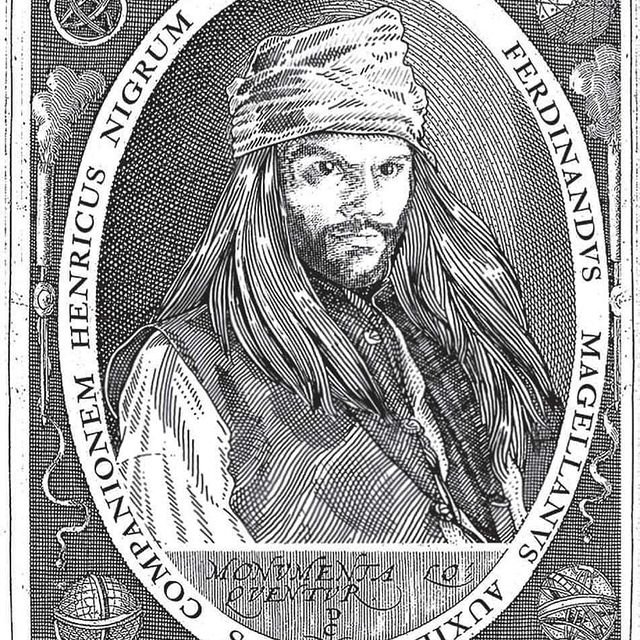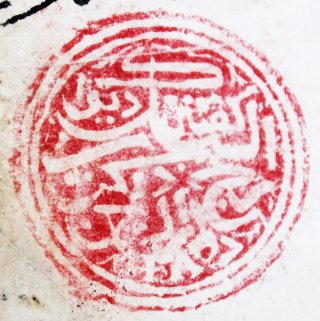Dragon
Penang Chronicles Volume I
About Dragon
-
The Straits is in crisis, beleaguered by the Dutch, the Bugis, and the clash between Siam and Burma. Enter Francis Light, country captain. We follow Francis through the Navy until he joins the Honourable Company and spends twenty years making his fortune in the Straits of Malacca, building strong connections with local rulers. His ultimate aim, however, is to establish a British outpost. Ultimately, he fails, but retains his local patronage and settles instead for fortune rather than fame, aided by a fortuitous marriage to a young local woman of noble birth. But he hasn’t yet forsaken his ultimate dream.
-
The following is just a taste of the many books and articles used in the writing of Dragon. My thanks to all the many historians upon whose shoulders I have climbed!
Books:
Andaya B. W. and Andaya Leonard Y. (2001) A History of Malaysia, 2nd edition, Palgrave Macmillan
Bowring, P. (2019) Empire of the Winds: The Global Role of Asia’s Great Archipelago. I.B. Taurus, Bloomsbury Plc
Clifford Hugh (1897) In Court and Kampong. (2016 reprint) Silverfish Malaysian Classics
Clodd, H.P. (1948) Malaya’s First Pioneer: The Life of Francis Light, Luzac and Company, Ltd, London
Crawfurd, John (1830) Journal of an Embassy from the Governor-General of India to the courts of Siam and Cochin China. Henry Colburn and Richard Bentley, London.
Langdon, Marcus (2013) Penang the Fourth Presidency of India: Volume I Ships, Men and Mansions. Areca Books
Keay, John, (1993) The Honourable Company: A History of the East India Company. Harper Collins
Mackay, Colin (2016 2nd ed) A History of Phuket and The Surrounding Region. Kris Books
McLeod A.B. (2012) British Naval Captains of The Seven Years’ War: The View from the Quarterdeck. The Boydell Press
Morson, Ian (1993) The Connection Phuket, Penang and Adelaide, The Siam Society, Bangkok
Maziar Mozaffari Falarti (2014) Malay Kingship in Kedah: Religion Trade and Society, SIRD
Sanjay Subrahmanyam, ed. (1996) An Expanding World Volume 8: Merchant Networks in the Early Modern World, Aldershot: Varorium, Routledge
Steuart, Archibald Francis, (1901) A Short Sketch of the Lives of Francis and William Light, the Founders of Penang and Adelaide; with extracts from their journals, General Books 2010
The Encyclopaedia of Malaysia series: The Rulers of Malaysia; Religions and Beliefs; Peoples and Traditions; Early Modern History. Archipelago Press
Online articles:
Andaya, Barbara Watson. “The Role of the Anak Raja in Malay History: A Case Study from Eighteenth-Century Kedah.” Journal of Southeast Asian Studies, vol. 7, no. 2, 1976, pp. 162–186. JSTOR, www.jstor.org/stable/20070180.
Basu, Bhaskarjyoti. Francis Jourdan and the reopening of South-East Asian trade in the 1760s by the Madras association of merchants. Proceedings of the Indian History Congress, vol. 66, 2005, pp. 1275–1282.
Bonney, R. “FRANCIS LIGHT AND PENANG.” Journal of the Malaysian Branch of the Royal Asiatic Society, vol. 38, no. 1 (207), 1965, pp. 135–158. JSTOR, www.jstor.org/stable/41491842.
Chakrabarti P. ‘Neither of meate nor drinke, but what the Doctor alloweth’: Medicine amidst War and Commerce in eighteenth-century Madras. Bull Hist Med. 2006;80(1):1–38. doi:10.1353/bhm.2006.0009
Gupta, S. N. Das. “THE ENGLISH EAST INDIA COMPANY'S QUEST FOR SETTLEMENTS IN THE EAST INDIES IN THE MID-EIGHTEENTH CENTURY.” Proceedings of the Indian History Congress, vol. 3, 1939, pp. 1402–1431., www.jstor.org/stable/44252486.
Humphreys, J.L. A Collection of Malay proverbs, Journal of the Straits Branch of the Royal Asiatic Society No. 67 (December 1914) pp.95-123
Jaffer, Aaron, (2015) Lascars and Indian Ocean Seafaring 1780-1860; Shipboard Life, Unrest and Mutiny. Boydell Press
Jones, Russell. “Two Malay Letters Written by Sultan Muhammad Jiwa Muazzam Syah of Kedah to Captain Francis Light.” Journal of the Malaysian Branch of the Royal Asiatic Society, vol. 54, no. 3 (241), 1981, pp. 24–34. JSTOR, www.jstor.org/stable/41511034.
Lee, Kam Hing. (1995). The sultanate of Aceh : relations with the British, 1760-1824. Kuala Lumpur ; New York : Oxford University Press
Miller, W. G. “English Country Traders and Their Relations with Malay Rulers in the Late Eighteenth Century.” Journal of the Malaysian Branch of the Royal Asiatic Society, vol. 84, no. 1 (300), 2011, pp. 23–45. JSTOR, www.jstor.org/stable/41493788.
Sutton, Jean. The East India Company's Maritime Service, 1746-1834: Masters of the Eastern Seas. NED - New edition ed., Boydell & Brewer, 2010. JSTOR, www.jstor.org/stable/10.7722/j.ctt163tc6z.
Winchester, Clarence, ed., (Jan. 1937) Life in the East Indiamen, Bowen, Frank C., Bywaters, Hector C., Shipping Wonders of The World, Vol 1, Part 48, Amalgamated Press
WINSTEDT, RICHARD. “NOTES ON THE HISTORY OF KEDAH.” Journal of the Malayan Branch of the Royal Asiatic Society, vol. 14, no. 3 (126), 1936, pp. 155–189. JSTOR, www.jstor.org/stable/41559857.
Website:
An absolute treasury for all things maritime: ships, sailors and voyages! https://threedecks.org
Nigel Barley, In the Footsteps of Stamford Raffles
“Deeply researched and beautifully written, Dragon convincingly evokes the East of the period”
Reading from Dragon
“…Rose Gan’s well-crafted narrative has clearly been written following extensive historical research. It is a rare example of the important country trade that existed alongside the East India Company –and increasingly independent of it. After finally burning the last of his Company bridges, the opportunity Francis Light is about to grasp is the unspoilt island of Pulau Pinang…”
Sue Paul, author of Jeopardy of Every Wind, the Biography of Thomas Bowery
Grave of James Scott, Old Protestant Cemetery, George Town
A few players:
James Scott (1746-1808) ‘ The Perfect Malay’
Born the Scottish Borders, a relative of Sir Walter Scott, joined the Navy aged 7 and served with Francis Light on HMS Arrogant during the Seven Years’ War; they became lifelong friends. In 1763 he joined the East India Company but did not enjoy the experience. Within a few years he had his own trading ship and operated as an independent trader out of Phuket.
Scott assimilated to the local culture to such an extent that Company officers mocked him as ‘the perfect Malay’. For many years Scott and Light ran a trading company out of Phuket; it was Scott’s notion that Penang would make an ideal British port, although Light originally favoured Phuket.
Scott played a significant role in the settlement of Penang, although he remained behind the scenes. When Light became the Superintendent, Scott became its leading merchant, acquiring a huge fortune, based on commerce, landowning and plantations. He helped many settlers by giving start-up loans but benefitted greatly, making as much money from lending and selling land as trade!
A vociferous critic of the Company, he often crossed swords with later governors who attempted to curb the power of merchants like Scott. He had ambitious plans to develop the south of the island on a site he named ‘Jamestown’. This project, into which he sank much of his money, failed. By the time of his death in 1808, his fortune had dwindled. No surviving image of Scott remains.
HMS Arrogant
HMS Arrogant
Heroine Sisters’ Monument Thalang, Phuket
Lady Chan c.1730-93
‘The Heroine Sister’
Lady Chan of the noble Ban Takkien clan was the daughter of Chom Rang, governor of Phuket (the island was then known as Jangsylan/ Ujang Salang/Thalang) and his Malay wife, Mahsia. Her second husband, Phaya Pimon also became governor of the island. During her lifetime, Chan wielded an extraordinary influence both in the mercantile and political worlds of the Straits, ruling as the de facto governor, the power behind the ‘throne’. She was a close friend of Francis Light for many years.
With her younger sister, Lady Mook, Chan defended Phuket against a Burmese invasion in 1786, taking a stand at the fort in Thalang manned only by women, children and old men. For this act of courageous defiance, King Rama I bestowed the honourable titles of ThaoThepkrassatri (Chan) and Thai Srisoonthorn (Mook), now the names of the main streets in Thalang in their memory. Mook’s daughter also became a concubine of the king and mother to one of his sons. Today the two women are honoured as ‘The Heroine Sisters’ with a monument and a festival held in their honour in March each year where famous actors react the story of her life.
Soliman c. 1757-1825 ‘The Foundling’
Ali Wallace
In Penang Chronicles, Soliman îs a Malay orphan boy adopted by Francis Light who goes on to become his mentor as he adjusts to life in the Straits. He is a largely invented character although based on a real person. In 1821 the scholar John Crawfurd, friend of Raffles and second governor of Singapore, met an old Malay sailor called Juragan Soliman (juragan= skipper) who was an experienced mariner with a wide knowledge of Siam and the Straits.
Although we have no knowledge of Light having such a companion, many famous Asia hands are known to have befriended locals who helped them negotiate the Malay world: Magellan and Enrique of Malacca; Raffles and Munshi Abdullah; Russell Wallace and Ali.
Soliman gives us a unique view on how the people of the Malay Straits perceive the tumultuous changes taking place in their world. He also gives us an insight into the struggle for identity of those whose life bridges two cultures.
Enrique of Malacca
Munshi Abdullah Kadir
Sultan Muhammad Jiwa c.1699-1778
Gold coin from the reign of Sultan Muhammad Jiwa
Islamic Seal bearing the stamp of ‘Kapitan Dewa Raja’ issued by the Sultan of Kedah, the Abode of Peace
Sultan Muhammad Jiwa Zainal Adilin II was the sultan of Kedah (Queddah in the novel) from 1723-1778 . Beset with the threat of coups both from within his family and court, he also faced danger from Kedah’s overlord Siam in the north and the encroachment of the Bugis from the south.
Sultan Muhammed was a shrewd ruler, a past master at the art of outmanoeuvring his many enemies. Impressed by Captain Light, he invited him to negotiate the establishment of a British port in Kedah in the hopes of securing British support to keep his enemies at bay. Although this proposal came to nothing it did not harm Light’s reputation with the sultan, who made him his senior merchant.
During his reign, Sultan Muhammed remained close to Light– whom he referred to as ‘my son’–even awarding him the honorific title of Dewa Raja Kapitan. Light and the sultan exchanged many letters in Jawi (Malay written in an Arabic- based script). Together they engaged in mutually beneficial commerce in weapons, opium, tin and rice.
Dragon promotional video
Media
Dragon launch Ubud Writers & Readers Festival 2021.
Covid made it virtual but we made the most of it with over 1000 views!
Newspaper Reviews:
The Star: November 26 2021
East Anglian Daily Times:
December 21 2021
Francis Light: The Suffolk Captain who left his mark on Asia
https://www.eadt.co.uk/lifestyle/21267990.francis-light-suffolk-captain-left-mark-asia/











